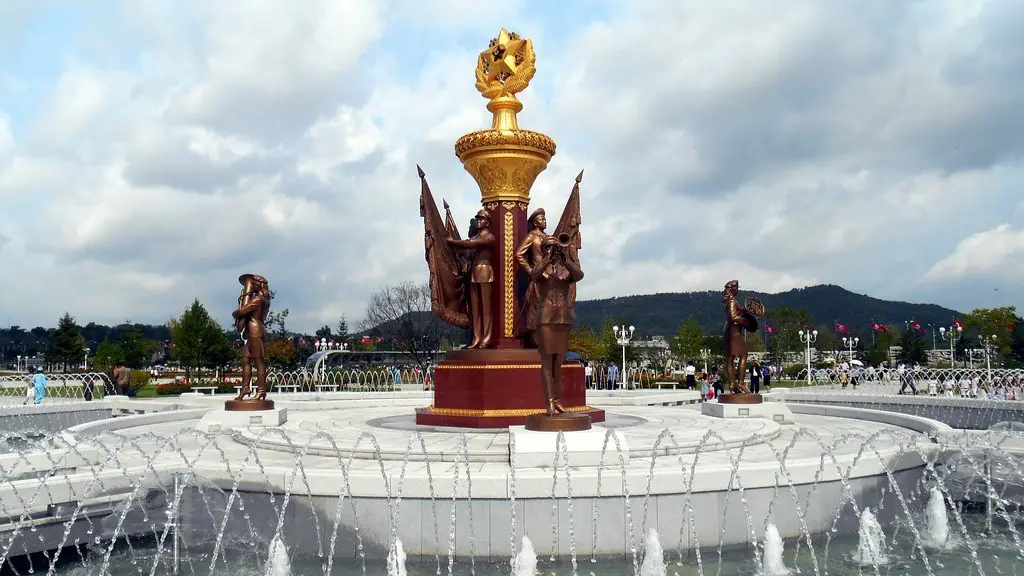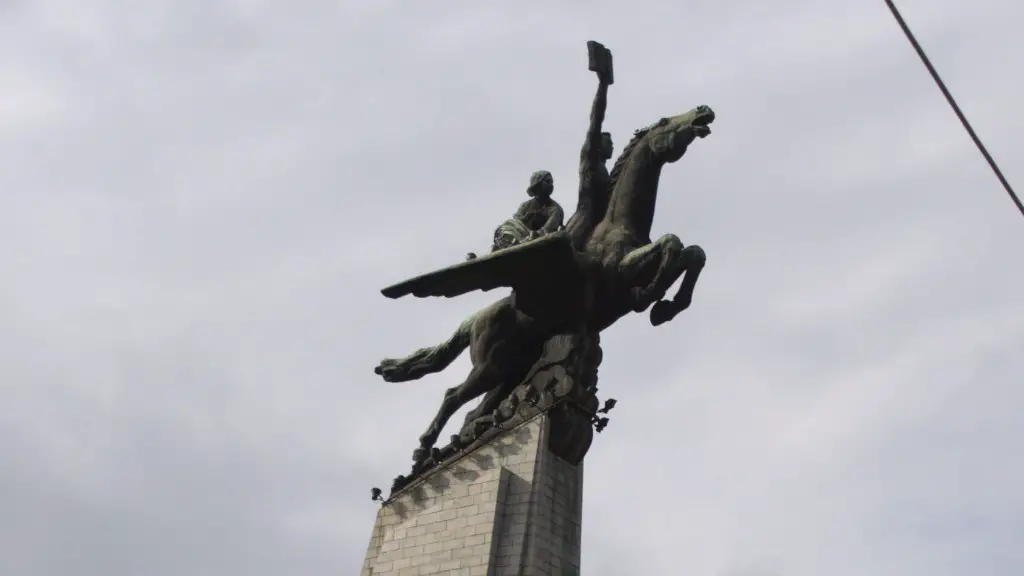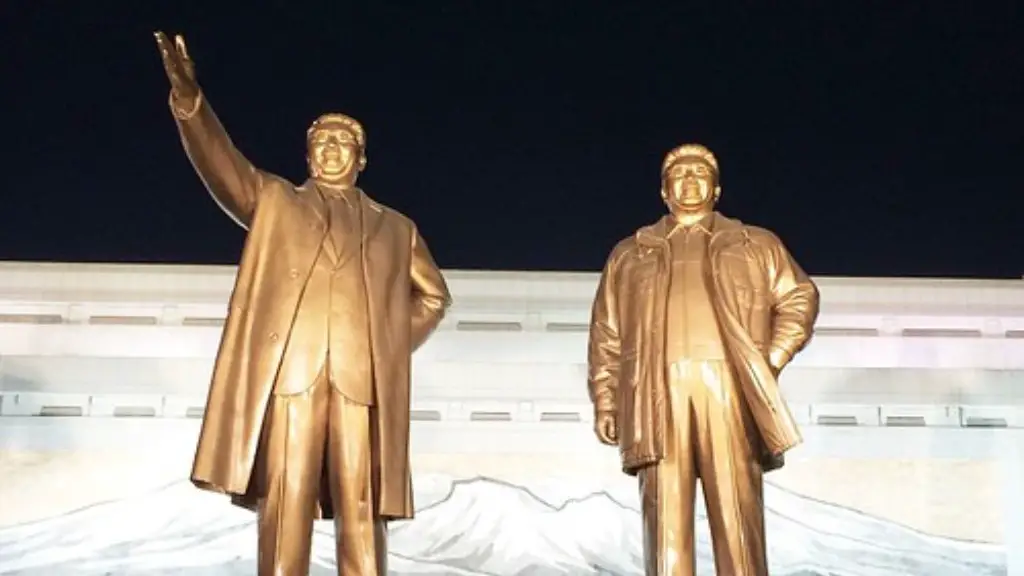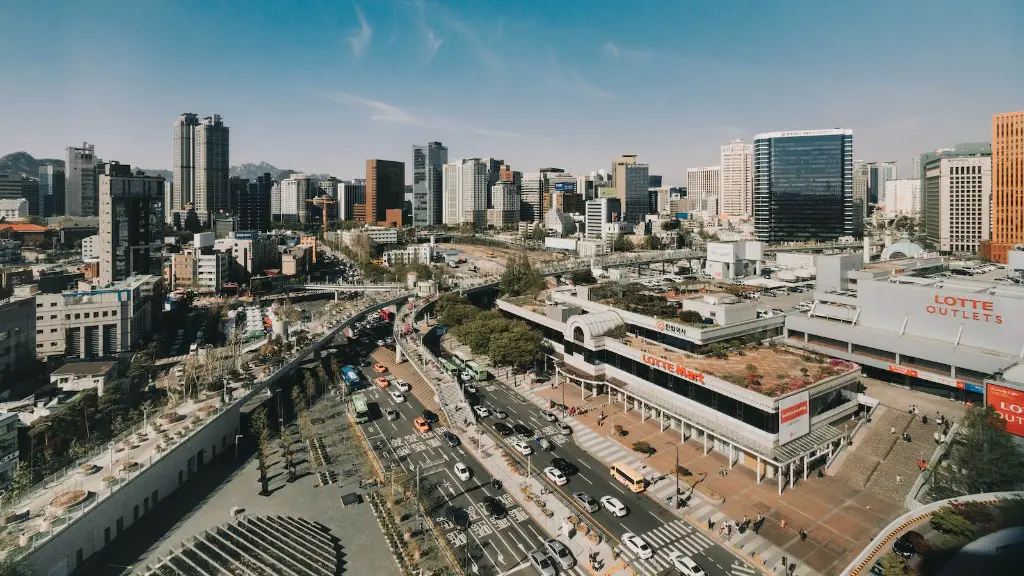Background Information
North Korea is an isolated and authoritarian regime that has focused heavily on its military power since its establishment in 1948. Though the country is facing extreme poverty and has relatively few natural resources, North Korea still dedicates more than a quarter of its total budget and at least 20 percent of its population to its military. A large portion of this money is spent on the development of nuclear weapons and other advanced military systems, ensuring that North Korea is equipped with a powerful military force that rivals most other nations.
Historical Perspectives
North Korea has been militarized since the 1950s, and the nation’s current leader, Kim Jong-un, continues to prioritize defense over nearly all other issues. Historically, the North Korean government has maintained an aggressive stance toward its neighboring countries, leading to decades of heightened tension and even military conflict with South Korea. In recent years, North Korea has also begun developing a nuclear program, and has openly threatened to use this program to wage war against the United States.
Motivations
North Korea’s focus on military power is largely motivated by its desire for self-preservation. The nation’s authoritarian regime has long been threatened by foreign powers, and the country’s leaders have chosen to increase its military power in order to resist outside influences—including the United States and its allies. By maintaining a powerful military, North Korea is able to project an image of strength and power, which helps the nation to deter foreign threats and retain its independence.
Economic Implications
The North Korean government’s focus on military power has also had a drastic effect on the nation’s economy. By devoting such large portions of the national budget and population to military endeavors, North Korea misses out on opportunities to invest in agriculture, industry, and other sectors that could potentially improve the nation’s economic situation. This has led to extreme poverty, and North Korea is now one of the poorest countries in the world.
International Response
North Korea’s militarization has had a significant impact on international relations, with the nation’s belligerent actions threatening the safety of its neighbors and leading to a series of diplomatic and economic sanctions from the United Nations. Despite this, North Korea’s leaders have refused to back down and continue to invest large amounts of money and resources into their military, which has deepened the rift between the country and the rest of the world.
Strategic Advantage
Though North Korea’s focus on military power has had obvious drawbacks, some experts suggest that the nation’s actions may have strategic value. By investing in military strength, the nation is able to resist US-led regime change policies, while at the same time gaining the attention of more powerful countries who are willing to negotiate and cooperate with the North Korean government. As such, investing in military power may be a calculated risk that allows North Korea to retain some of its independence and independence.
Propaganda and Ideology
North Korea’s investment in military power has also been closely associated with the use of propaganda and ideology. The nation’s leaders have used militaristic rhetoric to justify their actions and to promote a cult of personality surrounding the nation’s leaders. Additionally, the nation’s focus on military power has gone hand-in-hand with its strict isolationism, with citizens being taught from a young age that hostility and suspicion towards the outside world is the only way to ensure the nation’s security.
Civilian Consequences
Though North Korea’s focus on military power has given the nation a powerful military force, it has also taken a dramatic toll on the nation’s civilian population. As the nation’s military continues to grow in strength, the funds dedicated to social welfare and the nation’s infrastructure have decreased dramatically. This has led to severe shortages in food, medicine, and other basic necessities, leaving the nation’s citizens struggling to survive.
Counterbalancing Alliance
In response to North Korea’s increasing military spending and aggression, the United States and its allies in the region have increased their own military presence. This includes the deployment of troops, aircraft, and other military equipment to the Korean peninsula, as well as the establishment of joint exercises with neighboring nations. By counterbalancing North Korea’s military power, these countries are hoping to deter the nation from any further aggressive actions or military provocations in the region.
Political Implications
North Korea’s focus on military power has also had a significant effect on the nation’s internal politics. The nation’s current leaders use the threat of military force to maintain the authoritarian regime, by cracking down on dissent and eliminating political opposition. Furthermore, by maintaining a powerful military, North Korea is able to ensure the loyalty of its citizens, who are systematically indoctrinated to serve the interests of their government.
International Pressure
In recent years, North Korea’s militaristic policies have come under increasing criticism from the international community. The United Nations Security Council has imposed crippling economic sanctions in response to North Korea’s nuclear threats, while the US and other countries have repeatedly called on North Korea to end its hostile rhetoric and disarm its nuclear weapons. Despite this pressure, North Korea’s leaders have remained committed to their militaristic approach, with the nation continuing to invest heavily in military technology and infrastructure.
Military Build-up
Though North Korea’s leaders have attempted to use military strength to resist international pressure and secure their own power, the nation’s military build-up has sowed even more tension and hostility in the region. North Korea’s continued creation and stockpiling of nuclear weapons has led to increased fear and distrust among its neighbors, creating a high risk of military conflict in the near future.
Diplomatic Solutions
Given the increasing risk of military conflict in the region, it is clear that a diplomatic solution is needed. There have been a number of talks and negotiations between North Korea and other countries, however, the nation’s leaders have refused to make any substantial changes or concessions. As a result, many experts suggest that the only viable solution is for the international community to continue to apply pressure on North Korea and its leaders, in hopes that they will be compelled to end their aggressive militaristic policies.



